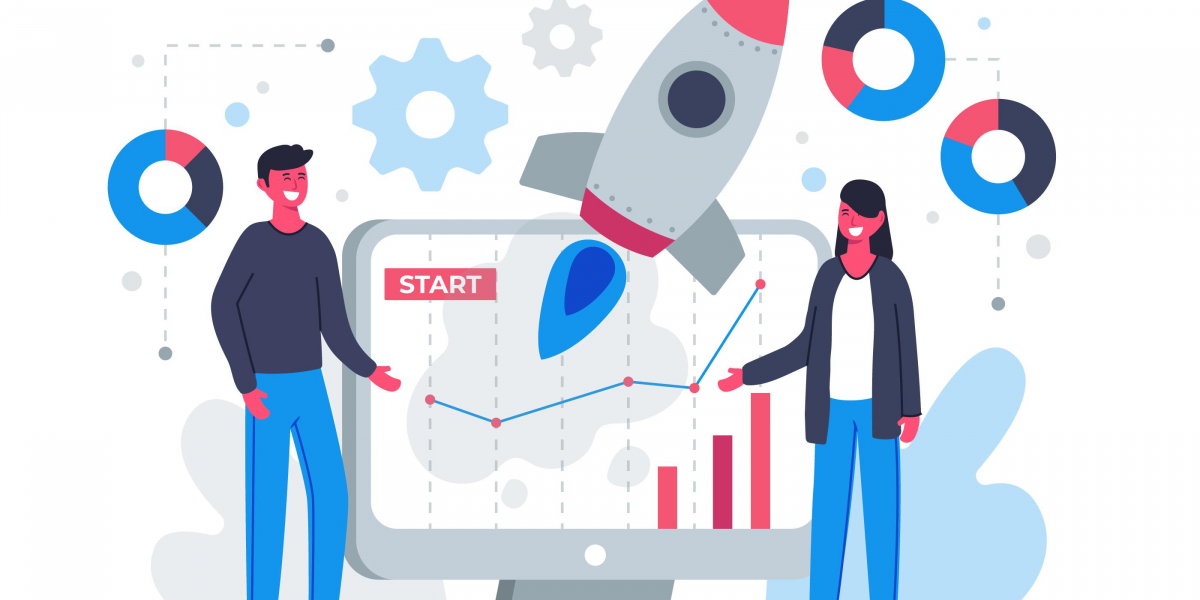Artificial Intelligence (AI) has become a game-changer for the media and entertainment industry, transforming the way content is created, distributed, and consumed. From personalized recommendations to real-time analytics, AI is revolutionizing the industry by offering new opportunities for engagement, efficiency, and creativity. By partnering with an AI development company, businesses in the media and entertainment sector can harness cutting-edge AI technologies to stay ahead of the curve. This guide explores the various facets of AI's influence on media and entertainment, delving into its applications, benefits, and future potential.
The Role of AI in Media and Entertainment
AI's role in the media and entertainment industry is multifaceted. It empowers businesses to understand consumer behavior, optimize content delivery, and enhance the creative process. By leveraging AI, companies can:
Streamline Production Processes
AI tools simplify editing, scriptwriting, and animation, reducing production time and costs. For instance, AI-powered editing software can automatically identify and edit highlights from long video recordings.Deliver Personalized Content
Streaming platforms like Netflix and Spotify use AI algorithms to analyze user preferences, providing personalized recommendations that enhance user engagement.Enhance Customer Experience
AI-powered chatbots and voice assistants offer 24/7 customer support, improving viewer satisfaction.Generate Insights through Analytics
AI analyzes vast amounts of data, helping content creators understand trends and audience preferences, leading to more targeted and successful campaigns.
Key Applications of AI in Media and Entertainment
1. Content Creation and Scriptwriting
AI is redefining content creation by automating tasks that were previously time-intensive. For example:
- AI-Powered Scriptwriting Tools: Tools like ScriptBook analyze existing scripts and predict audience reception, helping creators refine their stories.
- Generative AI for Music: AI tools like AIVA and Amper Music compose music based on predefined parameters, enabling artists to experiment with new sounds.
- Virtual Character Creation: AI aids in developing lifelike CGI characters, used in films and video games.
2. Personalized Recommendations
AI algorithms analyze viewing and listening patterns to recommend tailored content. This technology is extensively used by:
- Streaming Platforms: Platforms like Netflix, Hulu, and Amazon Prime use machine learning to predict what users might enjoy based on their viewing history.
- Music Platforms: Spotify’s Discover Weekly playlist is an excellent example of how AI personalizes user experiences.
3. Automated Editing and Post-Production
AI-powered tools expedite post-production processes, such as:
- Video Editing: Tools like Adobe Premiere Pro use AI for tasks like scene detection and color grading.
- Visual Effects: AI enhances CGI by automating repetitive tasks, saving time for artists.
- Audio Enhancements: AI cleans audio tracks, removing background noise and improving sound quality.
4. AI-Driven Marketing and Advertising
AI optimizes marketing efforts through targeted campaigns and real-time analytics. Key applications include:
- Ad Targeting: AI analyzes user data to display personalized advertisements.
- Content Creation for Ads: AI tools like ChatGPT generate engaging ad copy and visuals.
- Performance Metrics: AI tracks campaign success, offering insights for improvement.
5. Audience Engagement and Interaction
AI technologies foster deeper engagement by enabling:
- Chatbots: Virtual assistants answer viewer queries, recommend content, and enhance user experience.
- Interactive Content: AI creates immersive experiences, such as interactive films where viewers decide the storyline.
6. Predictive Analytics
AI-powered predictive analytics help media companies make data-driven decisions. For example:
- Box Office Predictions: AI tools predict a movie’s performance based on its genre, cast, and promotional strategies.
- Content Trends: Analyzing social media and search engine trends to identify popular themes.
Benefits of AI in Media and Entertainment
1. Cost Efficiency
AI reduces the need for manual labor in repetitive tasks, cutting production costs significantly.
2. Enhanced Creativity
By automating mundane processes, AI allows creators to focus on innovative and artistic aspects of their work.
3. Improved Audience Engagement
AI-driven personalization increases viewer retention and satisfaction by offering relevant content.
4. Real-Time Insights
AI provides actionable insights from massive datasets, enabling companies to adapt strategies on the fly.
5. Scalability
AI tools can handle large-scale operations, such as managing millions of streaming users simultaneously, ensuring a seamless experience.
Challenges of Implementing AI in Media and Entertainment
Despite its benefits, AI adoption comes with challenges:
Ethical Concerns
- The use of AI for creating deepfakes and manipulating media raises ethical questions.
- AI’s ability to mimic human creativity has sparked debates about intellectual property rights.
High Implementation Costs
- Developing and integrating AI technologies can be expensive for smaller companies.
Data Privacy Issues
- AI relies on user data, making it crucial to address privacy and security concerns.
Job Displacement
- Automation of tasks may lead to job losses in areas like editing and marketing.
Bias in Algorithms
- AI algorithms can unintentionally perpetuate biases present in the data used for training.
Future of AI in Media and Entertainment
The future of AI in this industry looks promising, with advancements in several areas:
1. Hyper-Personalization
AI will take personalization to the next level, offering dynamic content tailored to individual preferences in real-time.
2. Virtual Reality (VR) and Augmented Reality (AR)
AI will enhance immersive experiences, blending VR and AR with interactive storytelling for games, films, and live events.
3. Advanced Content Moderation
AI will play a key role in moderating online content, ensuring platforms remain safe and inclusive.
4. Autonomous Content Creation
AI could become a co-creator, collaborating with humans to develop films, music, and games.
5. Blockchain Integration
AI-powered blockchain solutions will secure content distribution and protect intellectual property rights.
Notable AI Technologies in Media and Entertainment
Here are some of the most innovative AI tools and platforms:
- DeepMind: Known for its advanced machine learning algorithms, DeepMind enhances video quality and automates animation processes.
- OpenAI: Tools like ChatGPT and DALL·E enable scriptwriting and visual content creation.
- Cinelytic: This AI platform predicts a movie's success and helps in casting decisions.
- Runway ML: A creative toolkit for video editing and generating effects using AI.
Real-World Examples of AI in Media
1. Netflix
Netflix uses AI to power its recommendation engine, ensuring users discover content they enjoy. Its AI also assists in generating subtitles and dubbing.
How to Embrace AI in Media and Entertainment
Businesses can successfully integrate AI by:
- Investing in Talent: Hiring AI experts who understand both technology and the industry’s creative aspects.
- Choosing the Right Tools: Leveraging platforms like OpenAI, DeepMind, and Adobe Sensei.
- Focusing on Ethics: Ensuring AI is used responsibly to avoid ethical pitfalls.
- Continuous Learning: Staying updated with AI advancements to remain competitive.
2. Disney
Disney employs AI for creating lifelike animations and streamlining post-production processes. The company’s AI-powered tools have significantly improved character rendering.
3. Spotify
Spotify’s AI algorithms analyze user behavior to create personalized playlists and recommend new songs.
4. Warner Bros.
Warner Bros. uses AI to predict a film’s box office performance, helping with budgeting and marketing strategies.
Conclusion
AI is transforming the media and entertainment landscape, offering endless possibilities for creativity, efficiency, and engagement. From content creation to personalized experiences, AI empowers businesses to innovate and stay ahead in a competitive industry. Leveraging advanced technologies, including frameworks like ReactJS, developers can create seamless and interactive platforms that enhance user experiences. While challenges like ethical concerns and implementation costs exist, the potential of AI far outweighs the drawbacks. As technology evolves, the integration of AI into media and entertainment will continue to reshape how content is produced, delivered, and consumed, paving the way for a more dynamic and immersive future.









